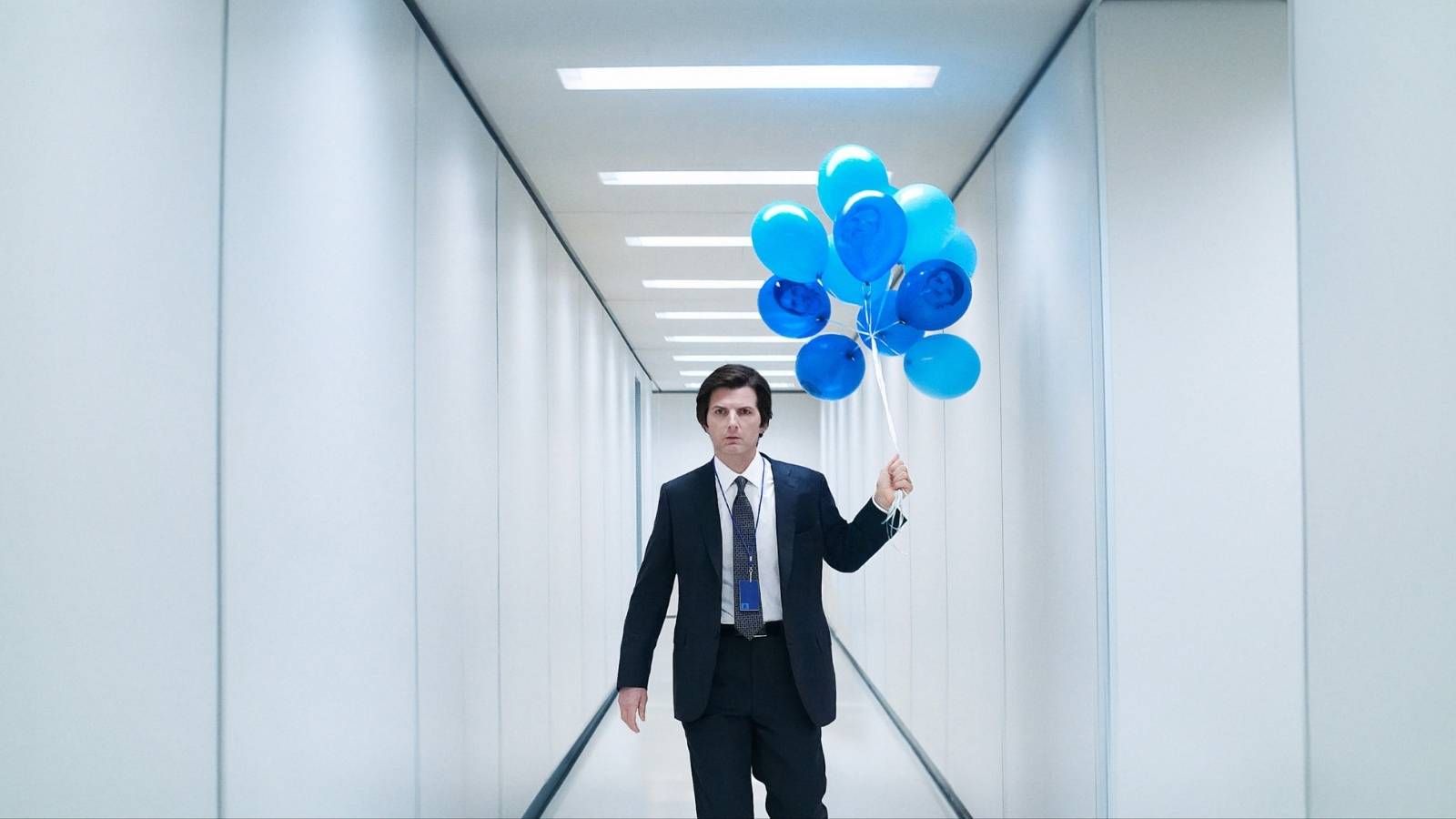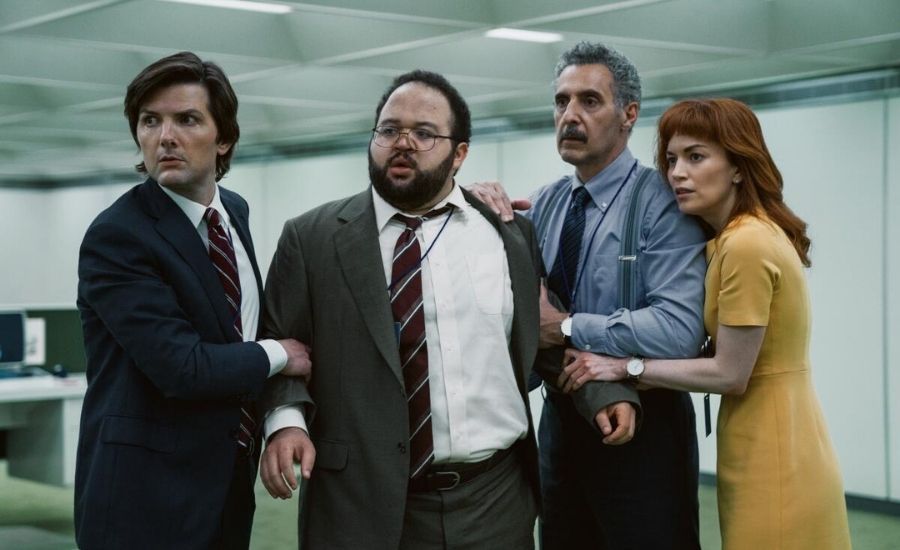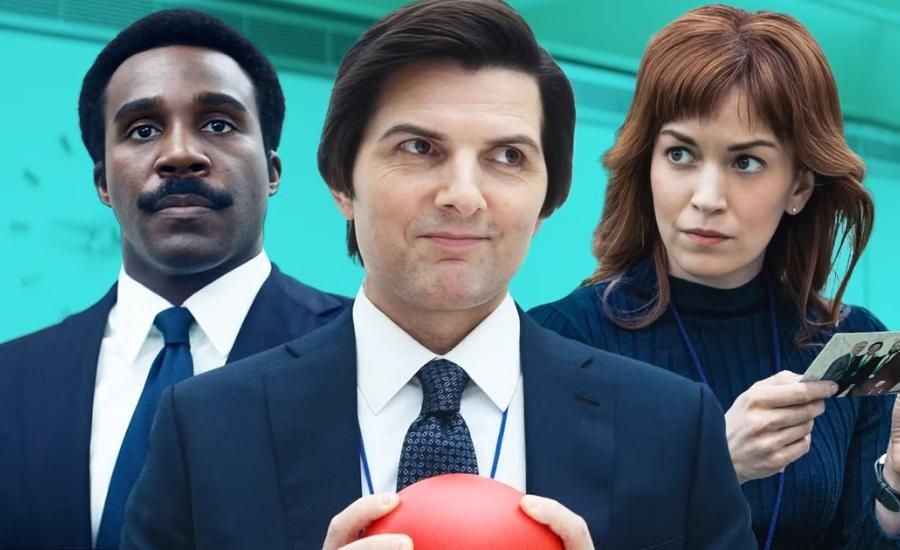
"Severance": The Show That Has Us Hooked
Have you seen "Severance" on Apple TV+ yet? If not, stop what you're doing (well, after you finish reading this, of course) and add it to your watchlist immediately. Seriously. I know we're all busy living our lives, but this show is worth carving out some binge-watching time for. It's the kind of show that stays with you, rattling around in your brain long after the credits roll. And trust me, you'll want to discuss it with everyone you know. So, let's dive into why this show has us so utterly hooked.
"Severance" presents a chilling premise:

What if you could completely separate your work life from your personal life? Like a clean, surgically-precise split. That's the reality for the employees of Lumon Industries, who undergo the "severance procedure." At work, they are "Innies," completely unaware of their "Outie" lives. When they leave the office, their Innies cease to exist, and their Outies take over, with no memory of what happened during their workday. It's a fascinating, albeit terrifying, exploration of our modern world's work-life balance (or lack thereof).
The show focuses on Mark Scout, a Lumon employee who has chosen to be severed in order to ease the pain of his wife's death. We quickly become absorbed by the sterile, retro-futuristic world of Lumon, a place that feels both familiar and deeply unsettling. The office is a labyrinth of beige cubicles, cryptic rules, and bizarre motivational posters. It can be described as a brilliant visual representation of the soul-consuming nature of some corporate environments, amplified to an almost absurd degree. Think "Office Space" meets "The Twilight Zone," with a dash of Kafka thrown in for good measure.
One of the things that makes "Severance" so compelling is its slow-burn storytelling. The whole mystery unfolds gradually, peeling back layers of intrigue with each episode. We're constantly trying to piece together the puzzle alongside Mark, and his colleagues, trying to understand the true nature of Lumon and its enigmatic founder, Kier Eagan. What exactly are they doing in that mysterious data refinement department? And why are the employees so intensely loyal to the company? The questions keep piling up, and the answers are often more disturbing than we could have imagined.
Let’s also take a moment to praise the performances that are absolutely top-notch. Adam Scott delivers a nuanced portrayal of Mark, a man struggling with grief and searching for meaning in his life. Mr. Milchick, Mark's supervisor, who embodies the ultimate corporate creepiness. And Britt Lower shines as Helly R., a severed employee who challenges the status quo and refuses to accept the Lumon ideology blindly. The entire cast is exceptional, bringing depth and complexity to their characters.

However, beyond the mysterious and captivating plot and stellar acting, "Severance" is highly relatable because it raises some very real issues. It explores the dehumanizing aspects of corporate culture, the feeling that we are just a cog in a machine. It also explores the nature of identity and the eternal question of what makes us who we are. If your memories and experiences are fragmented, are you still the same person? A philosophical question wrapped up in a stimulating and suspenseful package. And let's be honest, how many times have we felt like our work selves are entirely different from our personal selves? We put on that professional face, navigate office politics, and try to leave all the stress behind when we clock out. "Severance" takes this feeling to the extreme, literally dividing the two worlds. It's a dark and twisted reflection of our struggle to maintain a healthy work-life balance. The show makes you think, "Wouldn't it be nice to just switch off at the end of the day?" But then it also makes you think, "But at what cost?"
This show is so appealing in so many ways. Its slight but witty observations about modern life are almost revolutionary. Not to mention the notorious Lumon handbook, with its bizarre rules and corporate jargon that creates a parody of corporate culture. The "innie" employees' obsession with "waffle parties" and "melon parties" (kudos to the writer for those parties) is both funny and deeply problematic; yes, problematic, because it shows the ways in which companies try to influence and retain their employees as well as the lengths corporations will go to in the name of productivity and performance.
"Severance" has definitely become a conversation starter. It's the kind of show you dissect with your friends, theorizing about what will happen next and debating the deeper meaning behind the story. It's a show that stays with you, prompting you to reflect on your own relationship with work, identity, and the ever-elusive quest for balance. So, if you haven't already done so, join the conversation. You won't regret it. And if you've already seen it, please tell us about your insights for the next episode because we don't have any. We can only wait for the next episode






